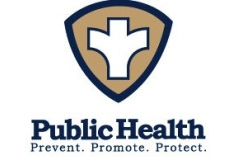Middle-Brook Regional
Health Commission
“Healthy People and Places – A Healthy Community”
Serving Green Brook, Warren, Watchung and Bridgewater
“Healthy People and Places – A Healthy Community”
Serving Green Brook, Warren, Watchung and Bridgewater
Rabies is caused by a virus which can infect both people and animals and it is virtually always fatal. While the majority of rabies cases in the state have been in wild animals such as bats, raccoons, skunks, and foxes, cats are also a relatively common victim of rabies. These cases can pose a significant threat to unvaccinated domestic animals, which can contract the virus from wild animals and transmit the infection to humans. Residents are reminded to take these rabies prevention measures:
The Commission offers free rabies vaccinations clinics throughout the year in each of our towns. For dates on upcoming clinics, please check the Calendar. Residents may attend any location, regardless of residence. Also, please remember to license your cat or dog. Information for licensing in your town can be found here.
Learn more on the New Jersey Department of Health’s rabies ‘frequently asked questions’ information sheet. In addition, here is information on animal confinement guidelines regarding possible rabies exposure.
